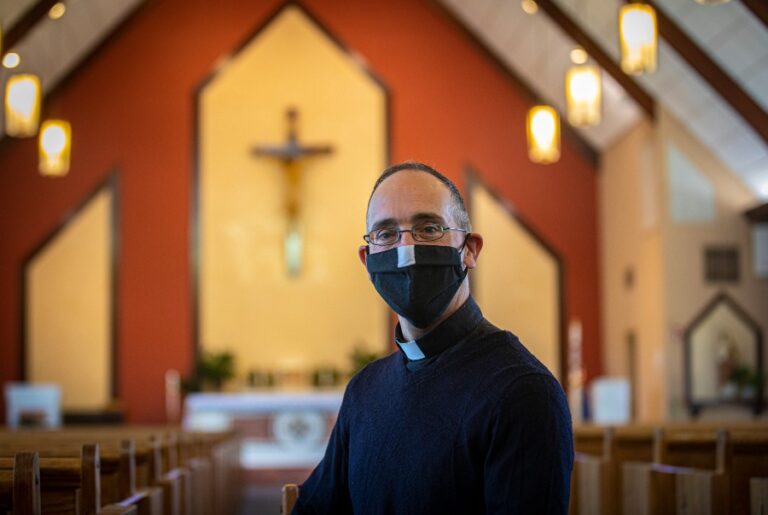COVID-19 forced religious communities to adapt the way they deliver services and conceptualize gathering and community. The degree to which religious communities pivoted their modes of worship and meeting, community building, and service provision varied just as religious organizations differed in their key programs, resources, and beliefs about the virus. Religious leaders found themselves making decisions about how their congregations would respond to the pandemic, often facing disagreement from members regardless of the approach they took.
Boniuk Institute researcher Brenton Kalinowski took a deeper look at the different responses that religious leaders took when discussing COVID-19 with their congregations and when making health safety decisions. He also delved into the pressures that motivated these specific responses.
Kalinowski found that leaders were faced with pressures stemming from the preferences of their congregational membership, and from their own fears of being perceived as taking a political stance due to the polarization of the pandemic response.
He found that religious leaders felt limited in their options for response, and these limitations in fact shaped their reactions. In general, religious leaders framed their decisions and approached conversations about COVID-19 in three main ways
- They explained their COVID-19 responses in terms of science and medicine
- They emphasized the compatibility of science and religion, and that following scientific guidance was the proper Christian response
- They framed COVID-19 responses as being outside the bounds of biblical knowledge
Though the pandemic is now years in the past, reflecting on the experience helps us to understand the sometimes-competing interests of religious leadership and the political beliefs of their members. Many religious leaders, who once avoided discussion of overtly political conversations, were faced with a situation where any decision they made responding to the pandemic, whether through action or inaction, could be perceived as political. During this time the political composition of a religious community became salient to its well-being and cohesion as members' political beliefs could often lead to conflict or even departures from the congregation.
While this work has clear implications for understanding the decision-making process of religious organizations during COVID-19, it also provides insight for future formation and functioning of American religious congregations as well as organizational responses to scientific and medical topics more broadly. Likewise, this research provides a better understanding of how organizations respond to politically contentious scientific and medical issues more broadly.

